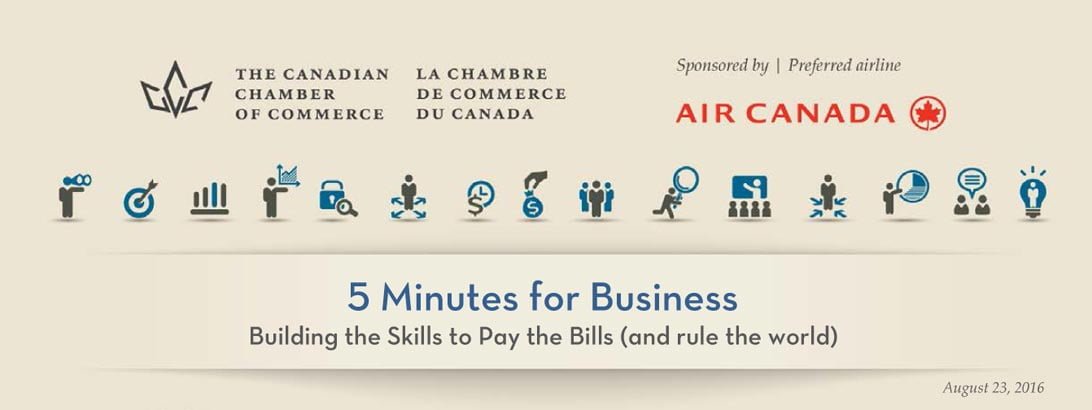What’s the best way to improve the skills of the Canadian workforce? Consider that 65% of children now entering grade school will end up working in careers that haven’t even been invented yet and that a young person entering the workforce today will change jobs 15 times in her career. So what should they be studying? One of the STEM jobs (i.e. science, technology, engineering or math) might seem like a safe bet, but be careful because 42% of Canadian jobs are at high risk of being automated by computerization and artificial intelligence, including many technical and applied science occupations.
Canada has excellent colleges and universities, but none of us really know what skills are needed in the future. At the same time, we are hearing from businesses that their inability to access skilled workers is one of Canada’s biggest barriers to competitiveness. In fact, we’re currently facing a skills gap, which is costing Ontario $24 billion each year in lost GDP and British Columbia $6 billion.

Brace yourself, Ellie! Your future job hasn’t been invented yet and you’ll likely have 15 different employers. Nobody said it would be easy…
Research is showing us where to invest to get much better results. A new report points out how important digital talent is to the future of our economy—and not just for Canada’s $74-billion information and communications technology (ICT) sector. Every job will soon have critical technology components. Today, everyone from auto mechanics to accountants has to master complex software to solve problems. Even pizza delivery services often use complicated online apps, while labourers need to advertise themselves online. Just being an ordinary citizen in Canada, you have to navigate an online world for everything from banking and healthcare to shopping and government services. That’s why digital skills have to be a priority for students at all levels.
The second priority is to build closer relationships between post-secondary institutions and employers. A recent survey by McKinsey found that two-thirds of Canadian employers felt that graduates weren’t prepared to join the workforce. Over half the graduates, themselves, said they weren’t ready for the job. The challenge is to prepare young people for a lifetime of learning and changing careers.
Getting more employer input into program curricula would be helpful but even more important is work-integrated learning, which provides experience in a real-world environment. We need better incentives for employers to create those co-op and intern jobs for post-secondary students.
The best way to prepare people for a lifetime of learning and new ideas is by investing in digital skills and giving students the real-world experience to succeed. These investments in human capital will increase productivity growth, and income inequality will fall as more people are pulled into the higher paying jobs. That’s the key to building a healthy, growing economy with lots of great opportunities. Just what Ellie needs to support her dad in his old age.
For more information, please contact:
Hendrik Brakel
Senior Director, Economic, Financial & Tax Policy
613.238.4000 (284) | hbrakel@chamber.ca



